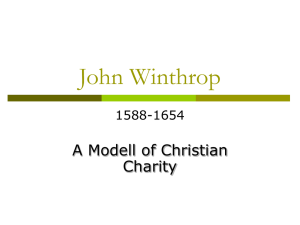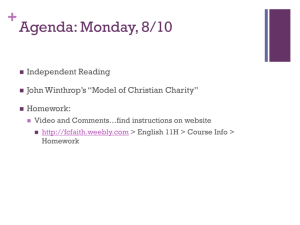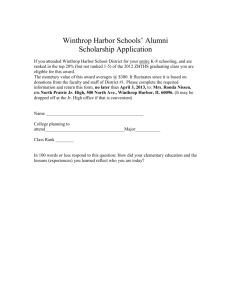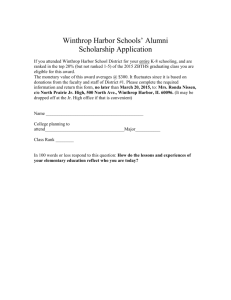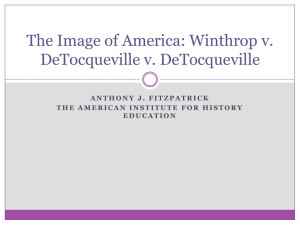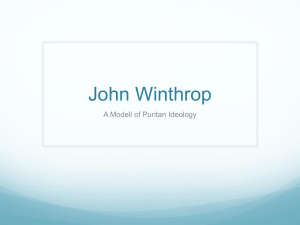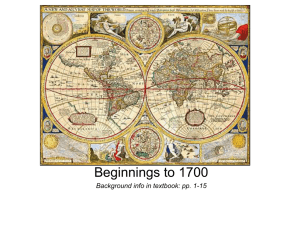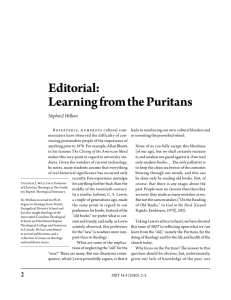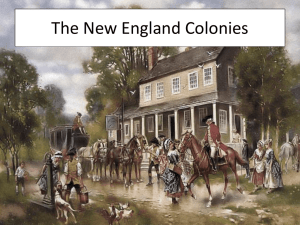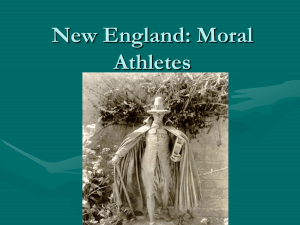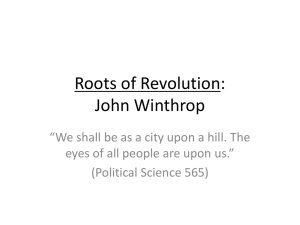A Model of Christian Charity
advertisement
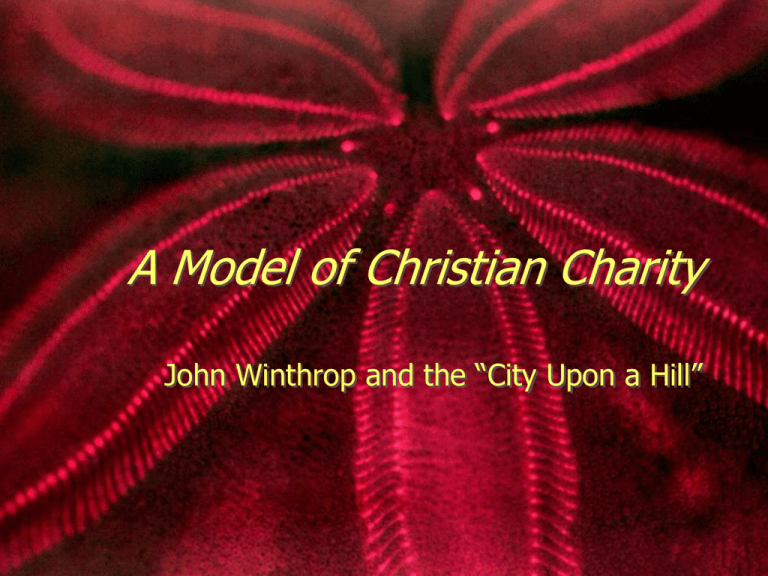
A Model of Christian Charity John Winthrop and the “City Upon a Hill” Purity of Faith and Purpose • In 1629, in response to government hostility toward Puritans, John Winthrop helped negotiate the charter to create the Massachusetts Bay Company Purity of Faith and Purpose • Unlike the separatist Puritans at Plymouth, Winthrop and his flock sought to reform the church from within • They believed they were party to a covenant, or contract, with God and were to serve as an example of how to live a pious life A Model of Christian Charity • In 1630, John Winthrop delivered the lay sermon “A Model of Christian Charity” on board the Arbella, as the Puritan settlers approached New England “…a city upon a hill…” • His famous proclamation that the new colony must be “as a city upon a hill,” a model society, continues to resonate as an enduring myth of America Community and the Individual • In the following excerpt, Winthrop gives reasons why his congregation is compelled to travel to New England to found a new colony. • Pay particular attention to the relative importance of what serves the community and what serves the individual. Pay attention to words that suggest a subordination of the individual “conformity” “things of our brethren” “bond of marriage” “obedience” “sacrifice” “knit together” “members of the same body” From “A Model of Christian Charity” (look at the bottom of page 6 of your handout) “It rests now to make some application of this discourse, by the present design, which gave the occasion of writing it. Herein are four things to be propounded; first the persons, secondly, the work, thirdly, the end, fourthly, the means.” “First, for the persons. We are a company professing ourselves fellow members of Christ, in which respect only, though we were absent from each other many miles, and had our employments as far distant, yet we ought to account ourselves knit together by this bond of love and live in the exercise of it. . .” “Secondly for the work we have in hand. It is by a mutual consent, through a special overvaluing providence and a more than ordinary approbation of the churches of christ, to seek out a place of cohabitation and consortship under a due form of government both civil and ecclesiastical.” “In such cases as this, the care of the public must oversway all private respects, by which, not only conscience, but mere civil policy, doth bind us. For it is a true rule that particular estates cannot subsist in he ruin of the public.” “Thirdly, the end is to improve our lives to do more service to the Lord; the comfort and increase of the body of Christ, whereof we are members, that ourselves and posterity may be the better preserved from the common corruptions of this evil world, to serve the Lord and work out our salvation under the power and purity of his holy ordinances. “Fourthly, for the means whereby this must be effected. They are twofold, a conformity with the work and the end we aim at. These we see are extraordinary, therefore we must not content ourselves with the usual ordinary means. Whatsoever we did, or ought to have done, when we lived in England, the same we must do, and more also where we go.” “That which the most in their churches maintain as truth in profession only, we must bring into familiar and constant practice; as in this duty of love, we must love brotherly without dissimulation, we must love one another with a pure heart fervently. We must bear one another’s burdens. We must not look only on our own things, but also on the things of our brethren. Continue with a partner… 1. Finish reading the remainder of the sermon, paying attention to words and phrases that highlight the importance of the individual vs. the importance of the community 2. Be prepared to discuss your thoughts on these findings. What are the benefits of working for the greater good? Who may be a member of this society? What happens to those who dissent? Homework The Puritans of Boston believed they were living predestined lives as described in the Bible. They developed a system called typology as a mode for both reading scripture and understanding the significance of historical and current events. Homework 1. Google “typology” or click the link on my website to develop some context for Puritans’ Biblical beliefs. 2. Re-read “A Model of Christian Charity” to locate typologizing moments. 3. Mark up your text! You’ll need to reference specific lines tomorrow in our Socratic seminar. Homework Consider the significance of the Puritans’ insistence on understanding their own history as prefigured by the Bible: What kinds of pressures might this tendency to read divine significance into everyday affairs put on individuals and on communities? How might it work to comfort and reassure people?
